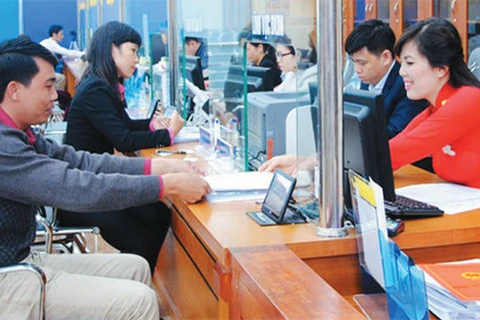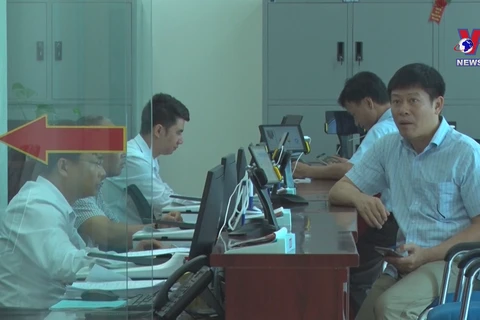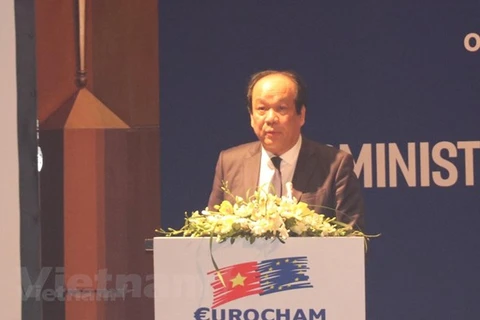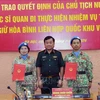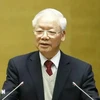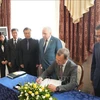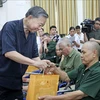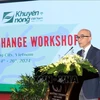HCM City (VNA) – Ho Chi Minh City has made continuous efforts in administrative reform over the past time, with public satisfaction considered a gauge of operational efficiency.
With a population of 9 million, it is estimated that each local public servant is responsible for serving 690 people.
Last year, the city’s Public Administration Reform Index (PAR Index) reached 83.56/100 points, ranking seventh among 63 cities and provinces, up 3 places as compared with 2018.
Despite the upgraded PAR Index in general, the southern largest economic hub experienced lower component indexes in management, administrative apparatus reform, personnel quality improvement, public financial reform, administrative modernisation and administrative impact on the public.
As for the Provincial Governance and Public Administration Performance Index (PAPI), HCM City was among 16 cities and provinces recording high average marks in 2019, with six increased indexes, covering public participation at the grassroots level, transparency, accountability responsibility towards the public, corruption control, public administrative procedures, public service supply and e-governance.
The city’s Provincial Competitiveness Index (PCI) during 2016-2019 slid from the eighth position to the 14th place due to its weak performance in market integration, transparency, time cost, corporate support and labour training.
To further raise the PAR Index, Vice Chairman of the municipal People’s Committee Ngo Minh Chau asked departments and agencies to review limitations to put forth specific solutions.
The People’s Committees of districts must publicise the progress and outcomes of administrative reform at the communal level, while intensifying inspection over the implementation of administrative reform tasks, focusing on personnel affairs, he said.
Apart from responding to petitions regarding administrative procedures submitted by individuals and organisations, the city will speed up the disbursement of public investment.
To improve the PAPI, the city will adjust and supplement tasks for departments and agencies, and trace the cause of low component indexes in order to set forth timely measures.
In addition, it will maximise information technology applications to further support businesses, and build mechanisms and policies to attract talents and raise education quality, thus improving the PCI.
At the same time, the city will continue to carry out the project on developing the supporting industry and put into use the facilities under the first phase of the scheme on building a smart city during 2017-2020 with a vision to 2025.
The city targets IT applications in all units, and will promote the role of leaders in administrative reform, and effectively implement the one-stop-shop model in construction, land, education and health care sectors.
According to a survey last year, 92 percent of the respondents said they were satisfied with the behavior of civil servants of the municipal Department of Planning and Investment, while the rate for the municipal Department of Construction, the People’s Committees of District 1, District 12 and Hoc Mon district were 93 percent, 92 percent, 91 percent, and 83 percent, respectively.
The rate of those who are not satisfied with the handling of public administrative procedures in the Department of Planning and Investment, the Department of Construction and the People’s Committee of District 1 was between 4-10 percent.
Meanwhile, the rate for the People’s Committees of District 12 and Hoc Mon district are 12 percent and 25 percent, respectively.
The survey was carried out in five units through 1,200 questionnaires collected from the list of people and organisations that completed their administrative processing request in the first quarter of 2018.
Under the Government’s Resolution No.68/NQ-CP on the promulgationof a programme on the reduction and simplification of provisions related to business activities during the 2020-2025 period, Vietnam aims to cut and simplify 20 percent of regulations and 20 percent of costs related to business activities by 2025./.
VNA

